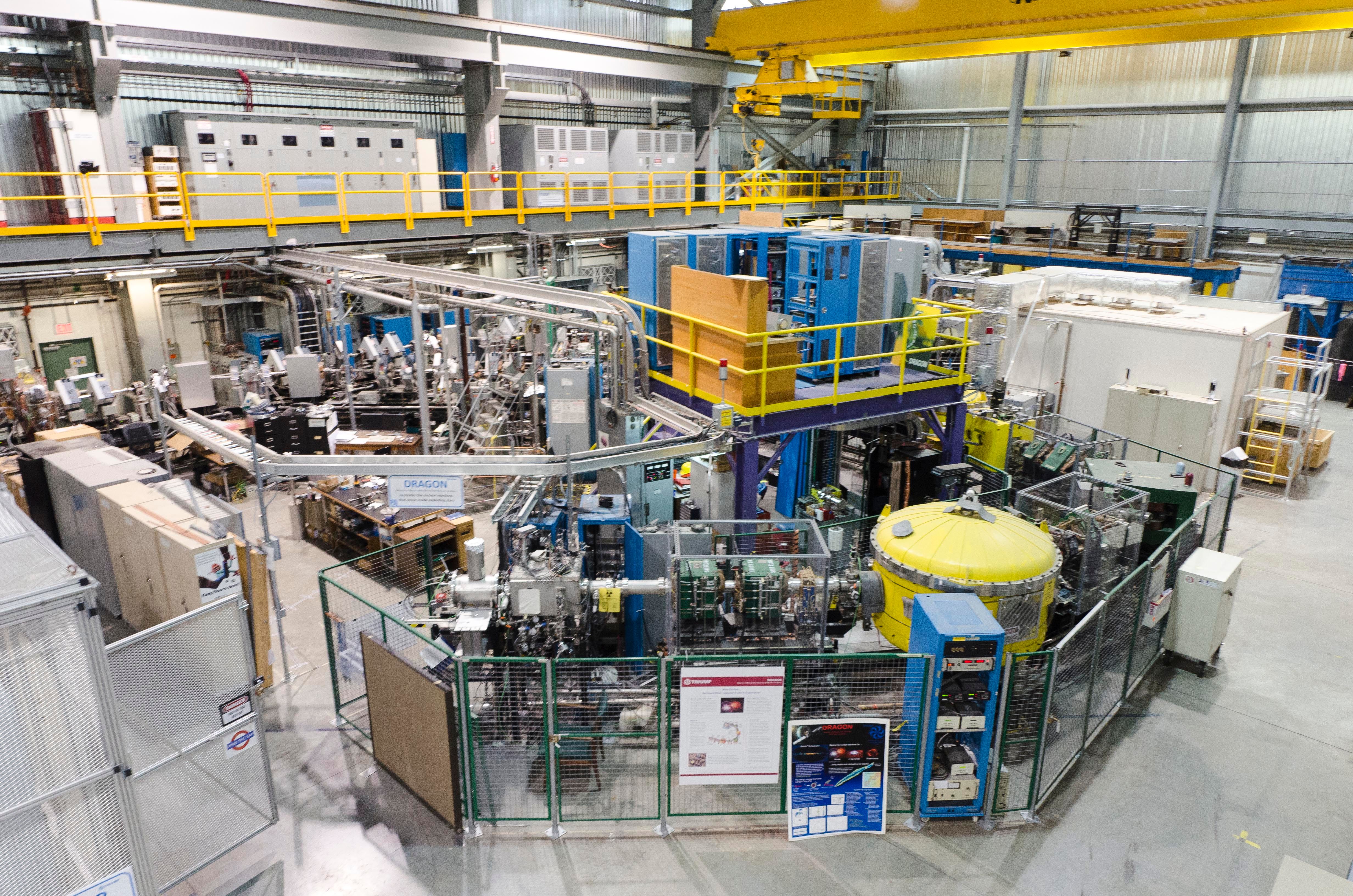
Nuclear astrophysics is the study of the origin of the chemical elements, and the study of how stars shine, evolve and ultimately die, both from the perspective of interactions between atomic nuclei.
These interactions are the governing and underlying cause for every phenomenon that glimpse in stars using today’s pantheon of astronomical instruments. In order to understand these interactions fully, we must explore the interplay between atomic nuclei in the laboratory setting, especially for rare isotopes that don’t exist on Earth naturally. To do this, we use particle accelerators, rare isotope beams, and purpose-built specialist facilities such as DRAGON - the Detector of Recoils And Gammas Of Nuclear reactions at TRIUMF's ISAC facility.
TRIUMF's ISAC hosts a range of world-class experimental hall purpose-built for nuclear astrophysics. Most well-known are the DRAGON and TUDA facilities, which operate in close collaboration. The overarching theme of the astrophysics program is the laboratory measurement of nuclear reactions critical in stellar burning and explosions. ISAC has some of the best rare isotope beams on the planet; this, combined with world-class instruments at DRAGON and TUDA, make TRIUMF the top laboratory for the measurement of many of these stellar nuclear reactions. The program attracts researchers from all over the world, and provides an excellent platform for Canadian researchers to perform world-leading experiments and drive progress in the understanding of stars with collaborations around the world.





